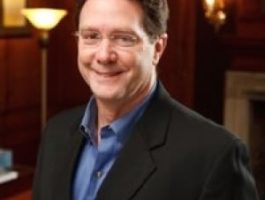
“Why Does My Mom Have Alzheimer’s?”
Alzheimer's disease is the most common cause of dementia in older adults and, unfortunately, there is no cure. Today, Dennis Rainey, whose own mother suffered with Alzheimer’s, talks with biblical counselors David Powlison and Ed Welch about this peculiar and often misunderstood brain disorder.
Show Notes
About the Host
About the Guest
-
Alzheimer's disease is the most common cause of dementia in older adults and, unfortunately, there is no cure. Today, Dennis Rainey, whose own mother suffered with Alzheimer’s, talks with biblical counselors David Powlison and Ed Welch about this peculiar and often misunderstood brain disorder.
-
Dave and Ann Wilson
Dave and Ann Wilson are hosts of FamilyLife Today®, FamilyLife’s nationally-syndicated radio program. Dave and Ann have been married for more than 38 years and have spent the last 33 teaching and mentoring couples and parents across the country. They have been featured speakers at FamilyLife’s Weekend to Remember® marriage getaway since 1993 and have also hosted their own marriage conferences across the country. Cofounders of Kensington Church—a national, multicampus church that hosts more than 14,000 visitors every weekend—the Wilsons are the creative force behind DVD teaching series Rock Your Marriage and The Survival Guide To Parenting, as well as authors of the recently released book Vertical Marriage (Zondervan, 2019). Dave is a graduate of the International School of Theology, where he received a Master of Divinity degree. A Ball State University Hall of Fame quarterback, Dave served the Detroit Lions as chaplain for 33 years. Ann attended the University of Kentucky. She has been active alongside Dave in ministry as a speaker, writer, small-group leader, and mentor to countless wives of professional athletes. The Wilsons live in the Detroit area. They have three grown sons, CJ, Austin, and Cody, three daughters-in-law, and a growing number of grandchildren.
-

David Powlison
David Powlison, M.Div., Ph.D. worked for four years in psychiatric hospitals, during which time he came to faith in Christ. He teaches at CCEF and edits The Journal of Biblical Counseling (soon to be re-launched online). He received a Ph.D. from the University of Pennsylvania in the history of science and medicine, focusing on the history of psychiatry. He has a Master of Divinity degree from Westminster Theological Seminary, and has been doing biblical counseling for over 30 years. He has writt...more
Ed Welch
Edward T. Welch, MDiv, PhD, is a licensed psychologist and faculty member at CCEF. He earned a PhD in counseling (neuropsychology) from the University of Utah and has a Master of Divinity degree from Biblical Theological Seminary. Welch has been counseling for over forty years and has written extensively on the topics of depression, fear, and addictions. His biblical counseling books include Shame Interrupted, When People Are Big and God Is Small, Addictions: A Banquet in the Grave, Depres...more
Alzheimer’s disease is the most common cause of dementia in older adults and, unfortunately, there is no cure.
“Why Does My Mom Have Alzheimer’s?”
Bob: Jesus said "Greater love has no man than this that he lay down his life for a friend." That's certainly the case if you are a caregiver to someone with Alzheimer's disease. Here is Dr. Ed Welch.
Ed: Usually in our relationships there is some sort of perk. There's a give-and-take, and there's something enjoyable about that relationship. The first thing I think with Alzheimer's is this is a true servanting relationship that I need grace to be a servant to my parents where there is not a perk that we get back from it, but it brings great glory to Christ all the same.
Bob: This is FamilyLife Today for Thursday, June 30th. Our host is the President of FamilyLife, Dennis Rainey, and I'm Bob Lepine. We’re going to talk today about caring for and loving someone who has been diagnosed with Alzheimer's disease.
And welcome to FamilyLife Today. Thanks for joining us on the Thursday edition.
We've been talking this week about those things that -- well, it's kind of, Dennis, a cross between what's going on spiritually, what's going on emotionally, what's going on physically in a person's life, and trying to make some sense out of things like attention deficit disorder, which we talked about yesterday, depression and bipolar, we talked earlier about homosexuality, and is there something in the brain or in the genes that determines that.
Today we're going to talk about something that I know is personal for you.
Dennis: Back about a year and a half ago or so, my mom couldn't keep track of the thermostat, and just couldn't remember how to set the thermostat. So we wrote it in big letters with arrows pointing to the cool and the heat, being able to help her keep her home appropriately warm in the winter and cool in the summer.
Then about a year ago it became clear, after I'd been up there a number of times, that my mom was suffering from dementia. A year ago last fall, went to the hospital, and the doctors said she now has Alzheimer's disease.
You know, I don't think anyone is ready for the diagnosis. It is a disease that really destroys a human being's dignity. My mom is a very funny person, a great sense of humor, bright, very connected emotionally in conversation. And yet as I've watched her grow older and older as she goes past the age of 90, you know, it just seems to me, as a child, just a real tragedy to watch someone that you love go through this.
We have with us a couple of counselors who have spent a great deal of time researching this subject as well as others. David Powlison and Ed Welch join us. David, Ed, I want to thank you for being on the broadcast all this week.
It's been stimulating discussion. We've had several phone calls and e-mails, and I'm sure letters will be in the mailbox in the coming days about what we talked about yesterday.
David: Good letters, right, Dennis?
Dennis: Yes. Good letters about ADD and ADHD. But it's been great to have you on the broadcast and have you with us all this week.
Ed: Thanks.
David: A pleasure, Dennis.
Dennis: Ed is the author of a book called, Blame It on the Brain. He is also a counselor, a faculty member at Westminster Seminary. David Powlison edits the Journal of Biblical Counseling. They both reside in the great city of Philadelphia, where I had a Philly cheesesteak one time in downtown Philly.
David: Amen.
Dennis: Where the natives eat.
(laughter)
Dennis: It wasn't any kind of tourist trap. I was in line with the regulars.
Bob: Yeah, and it was worth the wait, wasn't it?
Dennis: It was. It was a lot of fun. When we come to the subject of Alzheimer's, Ed, there's a great deal of -- well, I think of misconception, because I think we tend to kind of classify a lot of mental disorders of old age under this category. Am I right?
Ed: True, indeed, yes.
Dennis: What truly is the diagnosis of someone who has Alzheimer's?
Ed: Well the diagnosis actually is predominantly made at autopsy. So what that means is if we see a loved one who is declining intellectually, we immediately say something is going on, and we want to send them to a physician who will ask all kinds of questions and do the appropriate tests.
Alzheimer's, essentially, is when all the other diseases have been considered, and the person truly is declining intellectually, then Alzheimer's is usually the final diagnosis.
Bob: Is there a difference medically between Alzheimer's and dementia? I sometimes hear those used almost interchangeably.
Ed: Dementia is the broader category. Dementia simply means your intellect is declining and senile dementia means it's declining and you’re older than age 65. So dementia -- you can be a heavy drinker, and you have dementia. Your intellect has declined; however, it's just an acute problem. Your intellect goes back to normal when you are no longer intoxicated.
So dementia is the very general word. Alzheimer's is a more specific word that is characterized by an incessant, progressive, downhill decline of the intellect.
Bob: So there's no way to diagnose Alzheimer's other than to say it's dementia that's getting worse. There is nothing that we can look at and say, "We can tell this person has Alzheimer's."
Ed: More or less -- things are progressing rapidly. There are some hints on MRIs that will suggest Alzheimer's disease at this point. So the technology is advancing rapidly. I suspect at some point in the near future the diagnosis will be able to be much more definitive early on.
Bob: And you said you can tell at autopsy, they've found what's really going on. There is something happening in the brain that's causing memory loss and an inability to function with full motor skills, right?
Ed: The brain has atrophied significantly, and the neurons, the neuronal paths in the brain, they look strangely tangled and chaotic.
Dennis: Ed, you've written a book that has a chapter that discusses Alzheimer's as well as dementia, and I found it fascinating as I was reading through here that you called the reader back to the Bible. What exactly were you trying to do there? Because you have a disease that is diagnosed today and yet you believe we need to look at this biblically.
Ed: Scripture gives us even contours for how to think about something like Alzheimer's disease. For example, the image of God persists in somebody with Alzheimer's disease. There continues to be the knowledge of God. There continues to be an accountability before God. A brain that's not working very well does not limit our accountability before God. What is right is right before the Lord; what is wrong continues to be wrong.
So the Scripture enlarges our perspective of Alzheimer's disease. In other words, we cannot say that Alzheimer’s disease turns us into some sort of sexualized beast who’s always making sexualized comments when any woman walks by. The Alzheimer’s disease did not make us do that. That continues to be an issue of the heart. Scripture allows us to see those dynamics a bit more clearly.
Dennis: It occurs to me, as we talk about this that it's easy to miss those that are left behind with a memory and with a relationship. As I have dealt with my mom, and I go back to see her, it's almost like each trip results in deeper loss and grief and a reminder that …
Ed: … and it's a long-term grief. Where death, there's a certain finality to it and you can begin to deal with that in a godly way, but when a person is declining like that over a long period of time, it's like a long-term death, many times.
Bob: And you've experienced this sense yourself, not just in a clinical environment, but your dad has been diagnosed with Alzheimer's, right?
Ed: Certainly he has, yes.
Bob: And that diagnosis has been in place for how long?
Ed: Four years.
Bob: Uh-huh, okay.
Dennis: It's really interesting to go home and to drive up in front of the home you've been going back to for a number of years, to walk in beside my mom's bed and to perhaps be there as she awakens from a nap, to be holding her hand and stroking it and looking into her eyes and have her go, "Who are you?"
That's a grief that is almost unexplainable -- to watch someone you've had so much fun with and have such a great relationship with -- you lose them, not all at once, but as you just described, inch by inch you're watching your mom or your dad die, and you're watching them leave you, but they're still here.
Ed: You know, Dennis, we say as Christians, and we can let the words roll off our lips that "I believe in the resurrection of the dead." But we often don't bring into a situation such as we're talking about here that in the Bible, for example, in Romans 8, that’s linked with groaning. This is not right. This is terrible what's happening.
Or in Revelation that it is a day in the future when every tear is wiped away and death is no more, and that sense that -- that would be another way where Scripture certainly speaks to it. Not as a medical phenomenon, obviously, but as a human phenomenon.
It is an intense pain, and yet one that your mom is in Christ, and your mom will live, and that means something. We don't grieve as those who have no hope. That means something to those left behind as they go through the sort of thing you're speaking about.
Bob: David, we’ve talked this week about depression and ADHD. We’ve talked about the fact that the medical community has treatment for those diagnoses. There are prescriptions that are given and things that seem to influence the behavior. With Alzheimer’s, there’s nothing that medical science today can give that makes it any better.
David: It will be a wonderful common grace of God as and if treatments can –
Bob: If something breaks through.
David: We hope that they do, yes. But yet until then, both the sufferer and those who love the sufferer and suffer in that way, need to live with something which, yes, it’s one part of medicine that is often not stressed where it is really a custodial function. It’s a caretaking function, not a curative function.
Bob: Alzheimer's feels a little different as well -- at least different from things like depression and ADHD, because there we say a person has a certain level of responsibility for what they're manifesting. Even if there are impulses pulling them in one direction, they still have a responsibility before God not to sin.
What about with Alzheimer's? How do we deal with that? I mean, here is a person who is just losing all kinds of memory and control.
Ed: The first thing I think with Alzheimer's is the grief of it, as David was pointing out. The second thing with Alzheimer's disease is that I need grace to be a servant to my parents in a way that I have not been a servant before. Usually in our relationships, there is some sort of perk. There's a give-and-take, and there's something enjoyable about that relationship.
This is a true servanting relationship, where there is not a perk that we get back from it, but it brings great glory to Christ all the same. So that's the second thing that I think. But as a minister to my father, in particular, I need great grace to be able to bring glory to Christ by washing his feet and not get credit for that.
The next thing that I think, and this is probably the third thing rather than the first -- there have been times when my father has been simply cruel to his wife. Now, one of the themes that we try to consider as we consider the brain, is let's consider more normal things first, rather than look at things by way of a diagnosis.
If my father was being cruel to my mother when I was 25 years old and I would witness it, I would say, "Dad, what are you doing? Why are you treating Mom this way? That's not right. No matter what she did, that's not a right way to treat her." I would try to, with honor and respect, I would try to bring that to my father's attention.
Now the question is, why wouldn't I do that if he's struggling with Alzheimer's disease? I would suggest the norm is I would continue to do the same thing, but I might use different language to speak to him. So one of the things I do is I treat him normally as a person who continues to be responsible for the abilities he continues to have before the Lord.
The Scripture does speak against abusive speech and abusive behavior toward anyone, especially to a spouse. And so there have been times when I've gone to my father and said, "Dad, I'm not sure exactly why you're angry with Mom," and I don't know how he's interpreting it all, “but you are called to be a peacemaker, you are called to be a forgiver. You are called to be a person who speaks blessing to her when she frustrates you.”
And my father doesn't say, "Hold it, you can't say that to me because I have Alzheimer's disease. I don't have the ability to do those kinds of things." What my dad does is he says, "That's true, that's true,” and “Would you pray with me for that?"
Dennis: One of the things I've noticed with my mom is I'm relating to her in a very simple way. I used to carry on a conversation where I could speak to her in terms of paragraphs -- several sentences strung together to complete a thought. Now my relationship with her is a simple sentence with a simple idea.
What you're saying here with your dad is he still has the capability of understanding right and wrong -- of how he is kind or not kind to your mom.
Ed: It's part of humanness.
Dennis: And what I think we have to do is we need to meet our parents where they are and to love them, to respect them, speak to them as you did, with honor, but at the same time speak the truth in love.
Ed: Now, there may be, with my father -- the same way I am with other people -- there may be some ways he sins against me, for example, if I visit him, and I just overlook those sins. I cover the offense. There's no reason we have to raise every sin we find in another person.
However, when I find that it is somewhat mean or cruel to my mother, I believe that's not necessarily sin that should be covered. That's one that he should be able to consider.
Dennis: One thing I've noticed in my relationship with my mom that has really never been there to the degree it has been now is because of how life is becoming very simple to her, I'm finding that my touch of her is increasing -- holding her hand, sitting next to her on the couch, hugging her, just stroking her face, kissing her. We're far more affectionate, and it's kind of, like, that wasn't allowed to happen before to the degree because she was so busy, and now she's not busy.
Ed: It's like a very young child, where when they’re a year old, they can't process all kinds of language, but they do know when their parents love them. They can process that. They do respond to a parent that looks them in the eye, that cuddles them, that touches them with love.
Dennis: And it's interesting -- you know, you stroke her face and kiss her and talk about how pretty she is and then comb her hair. She has still not lost that womanly ability to appreciate that her hair looks nice. She still needs to know that and still needs to be affirmed.
Ed: What are you saying? My mother is a human being, and I am called to honor and to love her and you study her -- what she's able to understand, what she doesn't understand – and you vary your love according to her abilities.
Bob: And you treat her with as high a degree of human dignity as you can provide, even if you don't know how much of that is getting anywhere, right? I'm thinking about, David, those people who are listening, and their parents may have never known Christ, and they're watching the dementia take over. They're watching, maybe, the diagnosis of Alzheimer's. Maybe it's gone from forgetfulness now to just a loss of carrying on a conversation that makes any sense.
David: You know, it's one of those -- the very thing we're speaking of that, in a sense, you become the adult and they the child. It will give you a freedom to be able to pray for the person and to hold out promises in a way that you may have never been able to do when they were much more mentally competent and resistant, and there may be a softness.
I'll tell a brief anecdote -- my grandmother -- it was not Alzheimer's, it was a stroke, but she was in a coma, and she had been a person resistant to the Christian faith. And in her coma she could hear, and I visited her daily for a number of weeks before she died, and the day before she died, I'd been bringing the Lord to her, day after day praying for her, reading Psalms, and I brought the Lord much more pointedly to her, and the only part of her body she could move -- and you could tell she was awake -- she could squeeze with her right hand very faintly. You'd say, "If you're awake, squeeze three times," and get three little faint squeezes.
I read Psalm 23. I talked about Christ the good shepherd, and that particular day I had to pry her hand off of my hand, and she died that night. And, you know, I don't know what happened. I'm not privy to her heart, but clearly there was something in her weakness that there was an openness that I had not gotten in the previous years that I'd sought to speak to her about the Lord.
Dennis: I just want to express my appreciation to both of you gentlemen. You are true professionals. You have taken us back to the authoritative word on life, the Bible, as our ultimate counsel. I appreciate your ministry and your work there in Philadelphia, training seminarians, counseling, writing. I hope you guys will come back and join us again.
Ed, keep cranking out the books. Blame It on the Brain, I predict, Bob, is going to cause some people to think about the brain in a different way than they’ve ever thought about before.
Bob: Made my brain hurt, you know, just trying to read through it.
(laughter)
Bob: We have copies of the book available in our FamilyLife Resource Center, and you can get more information about the book Blame It on the Brain when you go to FamilyLifeToday.com. Or call 1-800- F-as-in-family, L-as-in-life, and then the word TODAY.
You’ll also find a couple of links on our website. One of the links will take you to a part of our website that deals specifically with the issues we have been talking about this week, the issues that you might go to a professional counselor to try to seek some help. Our friends at the Christian Counseling and Educational Foundation help us with articles that we’ve posted on our website that we hope will help you as you address some of these issues.
So again, look for that link. And then look for a link that will get you more information about the upcoming 2011 CCEF national conference, where they’re going to be addressing psychiatric disorders and the issues we’ve talked about this week. That conference is open to anybody who would like to attend.
Again, our website is FamilyLifeToday.com, and you’ll want to look for the links you find there.
Now, for those folks who are tuned in this week and you may be a new listener to FamilyLife Today, and you may be thinking, “Is this the kind of stuff you talk about every week on the program?” Well, FamilyLife Today is here to provide practical, biblical help for your marriage and your family. And so we try to deal with issues that are very real issues facing couples and facing moms and dads. Our goal is to see every home become a godly home.
If you’d like to find out more about FamilyLife Today, go to our website, FamilyLifeToday.com, and there’s information available there. This week, because of the subject we’ve been talking about, we thought it would be good to make available a booklet by our friend, Randy Alcorn, called If God is Good, Why Do We Hurt?
I know folks who are wrestling with all that we’ve talked about this week and sometimes ask that question. And so we thought making a copy of this booklet available as a free gift would be a way to help you understand what God is sometimes up to when we go through hard things in life.
If you’d like to get a copy of the booklet by Randy Alcorn, If God is Good, Why Do We Hurt?, you can request it online at FamilyLifeToday.com, or you can call 1-800-FLTODAY and ask for a copy, and we’re happy to send it out to you. Again, new listeners, we are glad that you’re tuned in, and hope you’ll continue to listen to FamilyLife Today, and hope you’ll stop by the website and find out more about what we have available.
And we want to encourage you to join us back tomorrow, when Chuck Colson is going to join us and we’re going to talk about a document that has been drafted, designed to voice support for the sanctity of life, for the biblical definition of marriage, and for the need for religious freedom in our culture. I hope you can be here for that.
I want to thank our engineer today, Keith Lynch, and our entire broadcast production team. On behalf of our host, Dennis Rainey, I'm Bob Lepine. We will see you back tomorrow for another edition of FamilyLife Today.
FamilyLife Today is a production of FamilyLife of Little Rock, Arkansas.
Help for today. Hope for tomorrow.
We are so happy to provide these transcripts to you. However, there is a cost to produce them for our website. If you’ve benefited from the broadcast transcripts, would you consider donating today to help defray the costs?
Copyright © 2011 FamilyLife. All rights reserved.





